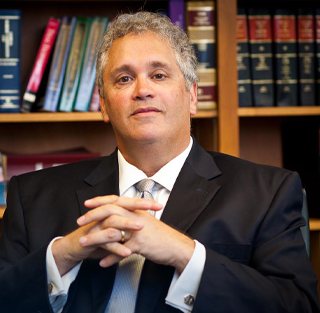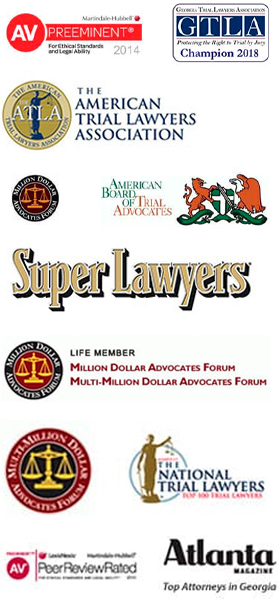A Background on Workplace Violence
According to the United States Department of Labor’s Occupational Safety and Health Administration, workplace violence is defined as any form of physical aggression, harassment, intimidation, or disruptive behavior that takes place in the workplace.
This type of disruptive behavior can range from verbal threats and abuse to violent physical assaults, and in extreme cases, even homicide.
In 2019, the Bureau of Labor Statistics Census of Fatal Occupational Injuries (CFOI) recorded 5,333 fatal workplace injuries in the country, out of which 761 were instances of intentional harm inflicted by another person. These statistics underscore the severity of the issue, as acts of violence and other injuries in the workplace have become the third-leading cause of fatal occupational incidents nationwide.
Understanding Employer Liability for Physical Assault in the Workplace
In cases of workplace violence in Georgia, employers have certain responsibilities and obligations to provide a safe work environment for their employees. After a violent physical attack in the workplace, employers can be held liable in certain cases.
Vicarious Liability
In the State of Georgia, employers can be held vicariously liable for the negligent actions of employees acting in the course and scope of employment. This is based on a common law legal doctrine called “respondeat superior” that holds a party liable for his or her agents, and it’s codified in O.C.G.A. § 51-2-1 through 51.2-5.1. However, vicarious liability generally can’t be applied in a case of intentional torts, such as an assault or battery.
Negligent Hiring & Retention
But there are other types of employer liability that may apply. Perhaps the two most common are negligent hiring and negligent retention. Both involve employer accountability when the employer knew or should have known of the employee’s propensity to engage in the type of conduct that caused injury. (In an assault and battery case, a good example would be hiring an employee who had a violent criminal record.)
If you were the employee and were assaulted while acting in the course and scope of employment, you might have a claim for workers’ compensation.
Unwanted Contact
Another type of employer liability for assault or unwanted contact could be a sexual harassment claim. If the person who assaulted you or had inappropriate contact with you was a co-worker, supervisor, or business client, it’s possible the employer could be held liable. Both federal and state laws protect individuals from sexual harassment, which is defined as behavior that is offensive, unwelcome, and sufficiently severe or pervasive. A plaintiff, in that case, must show the employer knew or reasonably should have known about the sexual harassment or previous assault and failed to take prompt remedial action.
Suing for Physical Assault in the Workplace
Most Georgia personal injury cases involve businesses or individuals who hurt someone through their failure to use reasonable care when they had a legal responsibility to do so. But what if someone intentionally harms you?
As our Atlanta personal injury lawyers can explain, there are situations in which you can sue someone for physical assault or inappropriate contact. However, it will depend heavily on the circumstances. Some elements we may consider:
- How seriously the victim was physically hurt.
- Whether the person who assaulted/touched the victim was in a position of trust.
- Whether the person who assaulted/touched the victim was on-the-job when the incident happened.
- Whether the incident occurred on the property of a business/individual with a duty to protect the victim. If so, whether there were prior violent incidents that occurred on-site that made this one foreseeable to the business/property owner.
Because there are many factors to be considered when deciding whether to sue for physical assault or inappropriate contact in the workplace, it’s imperative you discuss your options with an attorney who’s experienced. Our lawyers offer free initial consultations to help prospective clients decide whether they’ve got a case and how best to proceed.
Intentional Tort Claims for Physical Assault
An intentional tort claim is one way to sue someone who physically assaults or has inappropriate contact with you.
In general, a tort is a civil claim stemming from a wrongful act that injures someone or damages their property. An intentional tort is when the act that causes injury was deliberate. It requires the element of intent.
Intentional torts can include:
- Assault
- Battery
- Wrongful death
- False imprisonment
- Defamation
- Malicious prosecution
- Emotional distress
Here, we’re just going to focus on assault and battery. An assault is a threat or attempt of bodily harm, while battery is the intentional touching of someone without his or her consent. In Georgia, the law presumes each person has the right to be free from unwanted physical contact from others.
Defenses to intentional tort claims include denial (denying defendant did what plaintiff alleges), justification (admitting to the act, but denying the acts were wrong) and mitigation (admitting the conduct was wrong, but arguing for reduced damages due to lack of malice, bad faith or intent to cause harm).
One of the most significant problems in pursuing claims for intentional torts is that criminal acts and intentional wrongs aren’t generally covered by insurance policies. That means the plaintiff must collect damages directly from the defendant’s assets. In many cases, the attacker’s personal assets aren’t sufficient enough to justify pursuing a claim. That’s why employer liability and third-party liability claims for physical assault or appropriate contact are more common.
Holding a Third-Party Liable for Physical Assault in Georgia
In some cases, property owners/controllers can be held responsible for criminal attacks that occur on their property – even if they had nothing personally to do with the assault. These third-party actions are a type of premises liability claim, most often for negligent or inadequate security.
Premises Liability or Negligent Security Claims
Georgia law makes businesses/property owners who invite members of the public onsite responsible to use reasonable care in making the site safe – including from a foreseeable risk of criminal attacks. O.C.G.A. § 51-3-1 explains the duty of a landowner or controller to invitees (those welcomed to the property as a patron or member of the public). The question in a third-party liability case involving a criminal assault is whether the business or property owner could have foreseen that the crime was likely. This will require your injury lawyer to look at whether this was a random occurrence or if there was a pattern of criminal activity that could have tipped the property owner to an ongoing risk for invitees.
Keep in mind that in most of these cases, if you did not suffer physical injuries or a sexual violation, you might have difficulty collecting damages in these cases. Don’t rush to any conclusions until you’ve reached out to an experienced Atlanta injury attorney to consider your legal options.
The foregoing answers are not legal advice and are merely a general overview. You are advised to consult a lawyer to address your specific situation regarding your situation. For more information or to inquire about a free consultation, contact Stephen D. Apolinsky, an experienced Atlanta injury attorney, at Apolinsky & Associates at (404) 377-9191 or email him at steve@aa-legal.com.



